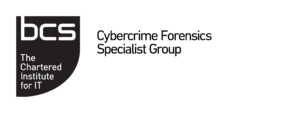The 13th International Workshop on Digital Forensics
to be held in conjunction with the 15th International Conference on Availability, Reliability and Security
(ARES 2020 –
http://www.ares-conference.eu
)
August 25 – August 28, 2020
Digital forensics is a rapidly evolving field primarily focused on the extraction, preservation and analysis of digital evidence obtained from electronic devices in a manner that is legally acceptable. Research into new methodologies tools and techniques within this domain is necessitated by an ever-increasing dependency on tightly interconnected, complex and pervasive computer systems and networks. The ubiquitous nature of digital devices in modern life presents many avenues for the potential misuse of these devices in crimes that directly involve, or are facilitated by, these technologies. The aim of digital forensics is to produce outputs that can help investigators ascertain the overall state of a system. This includes any events that have occurred within the system and entities that have interacted with that system. Due care has to be taken in the identification, collection, archiving, maintenance, handling and analysis of digital evidence in order to prevent damage to data integrity. Such issues combined with the constant evolution of technology provide a large scope of digital forensic research.
WSDF aims to bring together experts from academia, industry, government and law enforcement who are interested in advancing the state of the art in digital forensics by exchanging their knowledge, results, ideas and experiences. The aim of the workshop is to provide a relaxed atmosphere that promotes discussion and free exchange of ideas while providing a sound academic backing. The focus of this workshop is not only restricted to digital forensics in the investigation of crime. It also addresses security applications such as automated log analysis, forensic aspects of fraud prevention and investigation, policy and governance.
Topics of interest comprise but are not limited to:
Digital Evidence Extraction and Analysis
Network Forensics
Anti-Forensics Techniques
Physical Memory Acquisition and Analysis
Digital Forensic Information Visualisation
Fraud Investigations Involving Technology
Portable Devices
Cyber Terrorism and Warfare
Log Analysis
Incident Response and Management
Investigative Case Studies
Artificial Intelligence in Digital Forensics
Best Practices and Case Studies
Malware Analysis
Novel Data Recovery Techniques
Cyber Criminal Profiling
Big Data in Digital Forensics
Cyber Crime investigation
Triage
Cloud Forensics
Mobile & Drones Forensics
Investigative Methodologies and Procedures
Internet of Things (IoT) Forensics
Emerging challenges in Digital Forensics
eDiscovery
Investigative OSINT
| Submission Deadline | May 26, 2020 |
| Author Notification | June 20, 2020 |
| Proceedings Version | July 05, 2020 |
| ARES EU Symposium | August 25, 2020 |
| All-Digital Conference | August 25 – August 28, 2020 |
Workshop Chairs
Richard Overill
King’s College London, UK
Virginia N. L. Franqueira
University of Kent, UK
Andrew Marrington
Zayed University, UAE
Andrew Jones
University of Hertfordshire, UK
Kim-Kwang Raymond Choo
University of Texas at San Antonio, US
Program Committee 2020
Olga Angelopoulou, University of Hertfordshire, UK
Aswami Ariffin, CyberSecurity Malaysia, MY
Sandra Avila, University of Campinas (Unicamp), BR
Frank Breitinger, University of Liechtenstein, DE
Aniello Castiglione, University of Naples Parthenope, IT
Kam-Pui Chow, Hong Kong University, HK
Oren Halvani, Fraunhofer Institute, DE
Christopher Hargreaves, University of Oxford, UK
Graeme Horsman, Teesside University, UK
Helge Janicke, Cyber Security Cooperative Research Centre, AU
Simon Lang, Coalfire, UK
Liliana Pasquale, University College Dublin, IE
Vassil Roussev, University of New Orleans, US
Stavros Shiaeles, University of Portsmouth, UK
Simon Tjoa, St. Polten University of Applied Sciences, AT
Stefano Zanero, Politecnico di Milano, IT
Jeroen van den Bos, Netherlands Forensic Institute, NL
Inna Vogel, Fraunhofer Institute, DE
Submission
ARES 2019 (including workshops) was published by the International Conference Proceedings Series published by ACM ( ACM ICPS ).
The submission guidelines valid for the workshop are the same as for the ARES conference.
It is necessary that all papers submitted to EasyChair are anonymized (no names or affiliations of authors should be visible in the paper)
.
They can be found
>>here<<.
Keynote speaker
 IM-KWANG RAYMOND CHOO
, University of Texas at San Antonio
IM-KWANG RAYMOND CHOO
, University of Texas at San Antonio
Title:
“Internet of Things (IoT) Forensics: Challenges and Opportunities”
Abstract:
Internet of Things (IoT) devices are becoming commonplace in our society, due to their widespread applications (e.g., environmental monitoring, smart cities, healthcare, surveillance, and battlefields such as Internet of Battlefield Things). Such devices are also generally capable of capturing a broad range of information, including digital artefacts that can facilitate a digital investigation during a cyber security incident (e.g., data breach). While IoT devices are potential evidence acquisition sources, there are a number of challenges associated with IoT forensics and investigations as discussed in this presentation. We also identify a number of opportunities, which hopefully will help to shape future research agenda on IoT forensics. For example, we posit the importance of having a digital forensic black-box, conceptually similar to the cockpit voice recorder (also known as a flight recorder) on aircrafts, to facilitate digital investigations.
Bio:
IM-KWANG RAYMOND CHOO
received the Ph.D. in Information Security in 2006 from Queensland University of Technology, Australia, and currently holds the Cloud Technology Endowed Professorship at The University of Texas at San Antonio (UTSA), US. In 2015 he and his team won the Digital Forensics Research Challenge organized by Germany’s University of Erlangen-Nuremberg. He is the recipient of the 2019 IEEE Technical Committee on Scalable Computing (TCSC) Award for Excellence in Scalable Computing (Middle Career Researcher), 2018 UTSA College of Business Col. Jean Piccione and Lt. Col. Philip Piccione Endowed Research Award for Tenured Faculty, Outstanding Associate Editor of 2018 for IEEE Access, British Computer Society’s 2019 Wilkes Award Runner-up, 2019 EURASIP Journal on Wireless Communications and Networking (JWCN) Best Paper Award, Korea Information Processing Society’s Journal of Information Processing Systems (JIPS) Survey Paper Award (Gold) 2019, IEEE Blockchain 2019 Outstanding Paper Award, International Conference on Information Security and Cryptology (Inscrypt 2019) Best Student Paper Award, IEEE TrustCom 2018 Best Paper Award, ESORICS 2015 Best Research Paper Award, 2014 Highly Commended Award by the Australia New Zealand Policing Advisory Agency, Fulbright Scholarship in 2009, 2008 Australia Day Achievement Medallion, and British Computer Society’s Wilkes Award in 2008.

This year, WSDF will recognise its best paper with an award sponsored by the British Computer Society – Cybercrime Forensics Specialist Group.”



